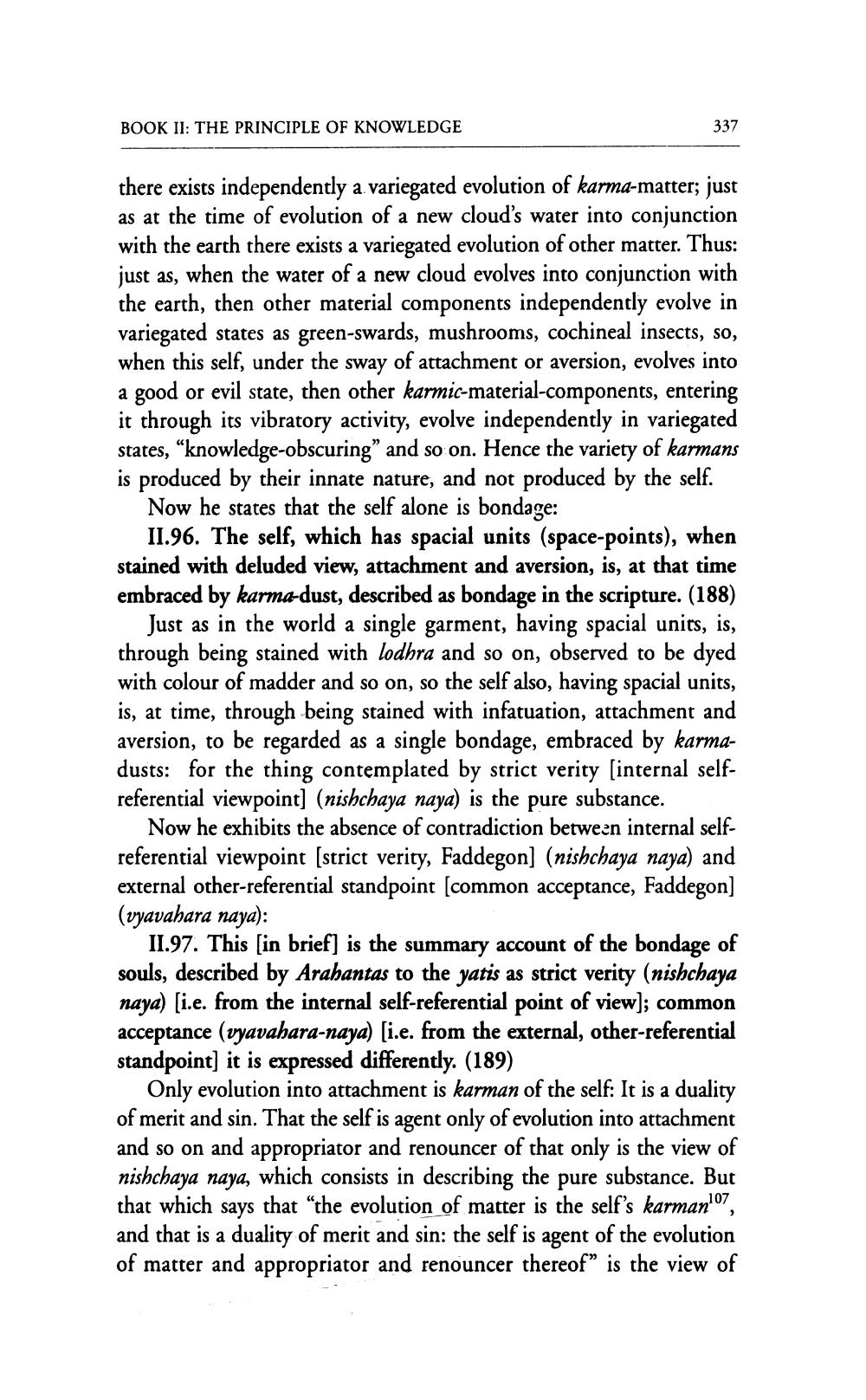________________
BOOK II: THE PRINCIPLE OF KNOWLEDGE
337
there exists independently a variegated evolution of karma-matter; just as at the time of evolution of a new cloud's water into conjunction with the earth there exists a variegated evolution of other matter. Thus: just as, when the water of a new cloud evolves into conjunction with the earth, then other material components independently evolve in variegated states as green-swards, mushrooms, cochineal insects, so, when this self, under the sway of attachment or aversion, evolves into a good or evil state, then other karmic-material-components, entering it through its vibratory activity, evolve independently in variegated states, "knowledge-obscuring" and so on. Hence the variety of karmans is produced by their innate nature, and not produced by the self. Now he states that the self alone is bondage:
II.96. The self, which has spacial units (space-points), when stained with deluded view, attachment and aversion, is, at that time embraced by karma-dust, described as bondage in the scripture. (188)
Just as in the world a single garment, having spacial units, is, through being stained with lodhra and so on, observed to be dyed with colour of madder and so on, so the self also, having spacial units, is, at time, through being stained with infatuation, attachment and aversion, to be regarded as a single bondage, embraced by karmadusts: for the thing contemplated by strict verity [internal selfreferential viewpoint] (nishchaya naya) is the pure substance.
Now he exhibits the absence of contradiction between internal selfreferential viewpoint [strict verity, Faddegon] (nishchaya naya) and external other-referential standpoint [common acceptance, Faddegon] (vyavahara naya):
II.97. This [in brief] is the summary account of the bondage of souls, described Arahantas to the yatis as strict verity (nishchaya naya) [i.e. from the internal self-referential point of view]; common acceptance (vyavahara-naya) [i.e. from the external, other-referential standpoint] it is expressed differently. (189)
Only evolution into attachment is karman of the self: It is a duality of merit and sin. That the self is agent only of evolution into attachment and so on and appropriator and renouncer of that only is the view of nishchaya naya, which consists in describing the pure substance. But that which says that "the evolution of matter is the self's karman107, and that is a duality of merit and sin: the self is agent of the evolution of matter and appropriator and renouncer thereof" is the view of




